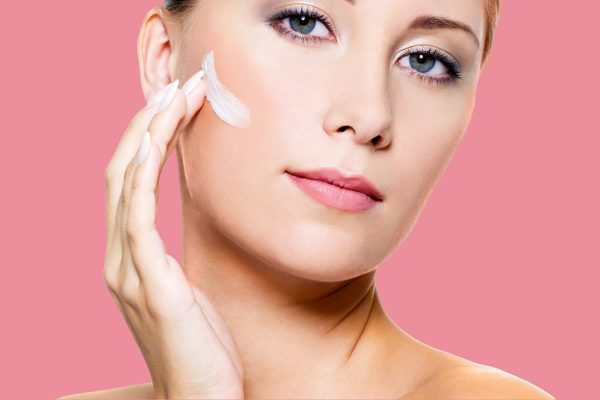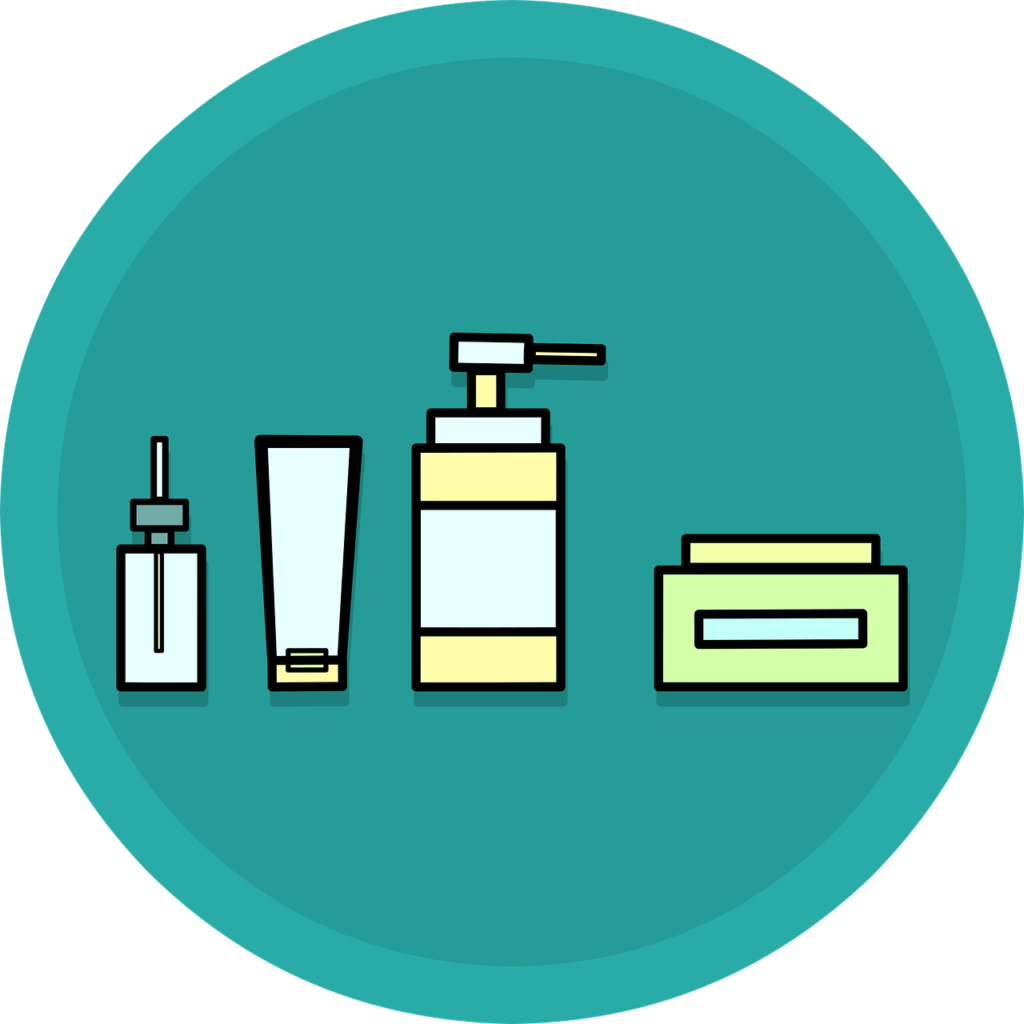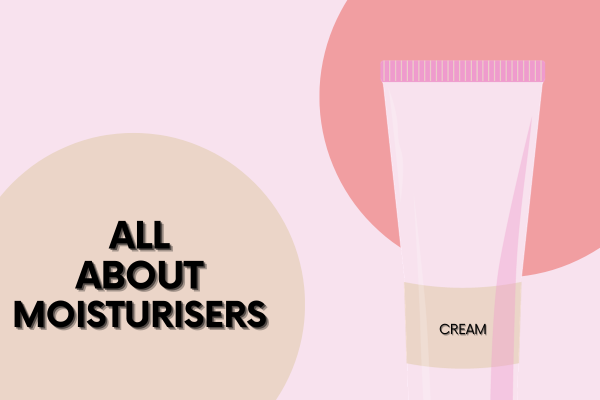Table of Contents
ToggleWhat is a Moisturiser? Discover How Moisturisers Help Fortify Your Skin's Protective Barrier
Introduction
In the pursuit of healthy skin, the importance of skincare cannot be overstated. It goes beyond mere cosmetics; it’s about promoting skin health and maintaining its integrity. One key player in this endeavor is the humble moisturiser. We will delve into the fascinating world of skincare and explore the role of moisturisers as protectors of your skin’s natural barrier
Section 1: Understanding the Basics


What is a Moisturiser?
In its simplest form, a moisturiser is a topical product designed to hydrate and soothe the skin. Unlike complex medical terminologies, this is a straightforward concept. Its primary purpose is to replenish the skin’s moisture content, ensuring it remains supple and healthy.
The Primary Purpose in Skincare Why is moisturising so crucial in skincare?
The answer lies in our skin’s natural barrier, a remarkable defence mechanism. Imagine it as a guardian shield, protecting us from external aggressors like pollutants, UV rays, and infections. This barrier consists of skin cells, lipids, and natural moisturizing factors (NMFs). However, various factors, such as weather, age, and our daily routines, can weaken this protective shield.
Here’s where the moisturiser steps in as a remarkable ally. It acts as a replenishing force, reinforcing the skin’s barrier. By providing hydration and locking in moisture, it prevents water loss, ensuring that our skin’s protective shield remains resilient.
Moisturisers work by trapping water in the outermost layer of the skin, the stratum corneum. This not only maintains the skin’s suppleness but also enhances its ability to fend off harmful elements. Moreover, well-hydrated skin is less prone to irritation, inflammation, and premature aging.
So, while the term “moisturiser” might sound simple, its role is far from basic. It is a vital component of any skincare routine, promoting the health and resilience of your skin’s natural protective barrier.
Types of Moisturisers
When it comes to moisturisers, the choices seem endless, each with its unique texture and purpose. Let’s delve into the different types of moisturisers available and their specific uses.
Creams
Creams are a tried-and-true favorite for many. They are thicker in consistency, offering a rich and indulgent feel on the skin. Creams are excellent for those with dry or very dry skin, as they provide deep hydration and form a reliable protective layer. This can be especially beneficial in harsh weather conditions, as creams help prevent moisture loss.
Lotions
Lotions are a lighter option, perfect for those with normal to slightly dry skin. They are more fluid and get absorbed quickly. Lotions are ideal for daily use, especially during warmer seasons when you need hydration without the heavy, greasy feeling.
Gels
Gels are the go-to for people with oily or acne-prone skin. Their lightweight, water-based texture hydrates without clogging pores. Gels often contain ingredients like hyaluronic acid, which provide a burst of moisture while helping to maintain the skin’s natural balance.
Serums
Serums are the powerhouses of moisturisers. These concentrated liquids contain active ingredients to target specific skin concerns. While serums aren’t typically used alone as a moisturiser, they are a fantastic addition to your skincare routine. They penetrate deep into the skin, working their magic on a cellular level. Whether it’s anti-aging, brightening, or hydrating, there’s a serum for everyone.


Different type of moisturiser works on different types of skin and its concerns. Choosing the right one for your skin can significantly impact the health of your protective barrier.
Moisturisers act as more than mere hydration sources. They also lock in existing moisture, prevent trans-epidermal water loss, and create a barrier against environmental stressors. This barrier-building function is crucial for keeping the skin resilient and youthful.
Section 2: How Moisturizers Benefit the Skin
Hydration: When you think of moisturizers, the first thing that likely comes to mind is hydration. What does it mean for your skin?
Moisturizers are like a refreshing drink for your skin, replenishing the moisture it loses throughout the day. Our skin constantly loses water through processes like transpiration and evaporation. This can leave it feeling dry, tight, and prone to flakiness. This is where moisturisers step in.
Moisturisers help by trapping moisture within the skin, preventing it from escaping into the atmosphere. They contain ingredients like glycerin, hyaluronic acid, and natural oils that act as humectants, attracting water molecules to your skin. This hydrating effect gives your skin that healthy, radiant glow.
The Importance of Maintaining Skin Moisture: The skin’s hydration is vital for its overall health. Properly hydrated skin is not only visually appealing but also more functional. Here’s why maintaining skin moisture is crucial:
- Skin’s Natural Defences: Well-hydrated skin is better equipped to defend itself against environmental aggressors. It’s like a strong fortress that can withstand attacks.
- Cell Renewal: Hydrated skin encourages proper cell turnover, aiding in removing dead skin cells and forming new, healthy ones.
- Flexibility and Suppleness: Dry skin is more prone to cracking and becoming damaged. On the other hand, Moisturized skin is flexible and less likely to suffer irritation.
Barrier Function: Now, let’s talk about the second essential role of moisturizers – strengthening the skin’s barrier.
The skin’s barrier is like a protective shield, guarding against external factors such as pollutants, UV rays, and bacteria. When this barrier is compromised, the skin becomes vulnerable to damage. Moisturizers play a key part in maintaining and enhancing this defense mechanism.
How do they do it?
Moisturisers contain lipids, ceramides, and cholesterol, which are the natural components of the skin’s barrier. When applied, these ingredients replenish and repair the barrier, making it more resilient. As a result, your skin becomes better equipped to ward off irritants and maintain its health.
Protecting Against External Factors: The external world can be harsh on your skin. Air pollution, extreme weather conditions, and UV radiation are constant threats. Moisturisers act as a protective shield by strengthening your skin’s natural defenses.
- Environmental Shield: By reinforcing the skin’s barrier, moisturisers act as a shield against pollutants, preventing them from penetrating and causing damage.
- UV Defense: While not a substitute for sunscreen, moisturisers can provide an additional layer of protection against the harmful effects of UV rays, especially when they contain SPF.
Section 3: Choosing the Right Moisturiser
3.1 Skin Type
One of the key aspects of selecting the perfect moisturiser is understanding your skin type. Our skin is as unique as we are, and different skin types require specific care. Here’s a simplified breakdown:
– Oily Skin: If your skin often looks shiny or feels greasy, you have oily skin. Opt for oil-free or non-comedogenic moisturisers that won’t clog your pores.
– Dry Skin: Dry skin can feel tight, rough, and sometimes even flaky. Look for moisturisers with ingredients like hyaluronic acid, glycerin, or shea butter to provide deep hydration.
– Sensitive Skin: Sensitive skin requires extra care. Go for fragrance-free and hypoallergenic moisturisers to avoid irritation. For sensitive skin, you should look for ingredients that are soothing in nature like aloe vera or chamomile.
– Combination Skin: Many of us have combination skin, which means you might have an oily T-zone and drier cheeks. Use a lightweight, balanced moisturiser to cater to both areas.
Understanding your skin type is the first step towards selecting a moisturiser that complements your skin’s specific needs.
Ingredients
Now, let’s unravel the mystery behind the ingredients commonly found in moisturisers and how they benefit your skin.
– Hyaluronic Acid: This superstar ingredient has a remarkable ability to hold water, making it an excellent hydrator. When applied to the skin, hyaluronic acid attracts and retains moisture, helping your skin stay plump and hydrated.
– Ceramides: Think of ceramides as the bricks of your skin’s protective barrier. They help maintain the skin’s natural barrier function, keeping it strong and resilient. When you use a moisturiser containing ceramides, you’re essentially rebuilding and fortifying your skin’s defenses.
– Glycerin: Glycerin is a humectant, meaning it attracts and locks in moisture. It makes your skin softer, smoother, and well-hydrated. It is suitable for all skin types.
– Shea Butter: Shea butter is a rich, natural emollient that deeply nourishes and soothes the skin. It is recommended for dry and sensitive skin types.
– Aloe Vera: Known for its soothing properties, aloe vera calms irritated skin and provides gentle hydration, making it a great choice for sensitive or sun-exposed skin.
Choosing a moisturiser that contains these ingredients is like giving your skin the royal treatment. They not only keep your skin well-hydrated but also support your skin’s protective barrier, enhancing its resilience.
Conclusion:
In conclusion, understanding your skin type and the ingredients in your moisturiser is the key to unlocking the full potential of your skin’s protective barrier. Whether you have oily, dry, sensitive, or combination skin, there’s a moisturiser tailored to your specific needs. When you choose the right one, you’re not just moisturizing; you’re building a fortress for your skin, ensuring it stays healthy and radiant.
Stay tuned for our next section, where we’ll explore the role of sunscreen in preserving your skin’s protective barrier. Until then, keep nurturing your skin and experiencing the benefits of a well-chosen moisturiser!
- RELATED ARTICLES:
- The 8 Most Effective Skincare Treatments You Can Do at Home

